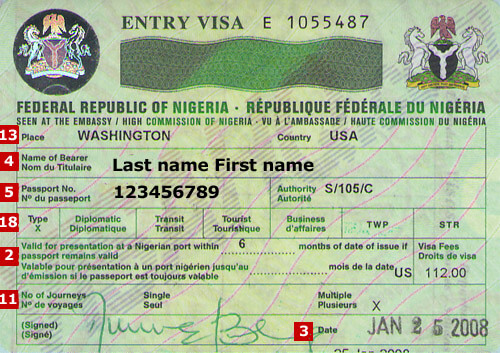Nigeria Embassy list in Central African Republic
Need help?Chat with us
Why Trip Registration at the Nigeria Embassy is Important
Registering your trip with the Nigeria embassy is essential for maintaining safety and securing vital communication in case of emergencies. Being registered allows the embassy to keep track of Nigerian nationals abroad and provide timely assistance during crises. For instance, in the event of a natural disaster like an earthquake or flood, the embassy can quickly provide information about safe zones and evacuation routes. In cases of political unrest, being registered enables the embassy to communicate essential updates effectively and coordinate emergency evacuations if needed. Furthermore, if you experience a medical emergency, your registration ensures that the embassy can assist with finding local healthcare facilities and offer support in navigating medical systems. Overall, trip registration enhances the safety of Nigerians abroad, ensuring prompt attention during unforeseen situations.
Nigeria Embassy FAQs
Can the Nigeria embassy assist in legal issues abroad?
Yes, the Nigeria embassy can provide guidance on legal issues faced by nationals abroad, including referrals to local attorneys and advice on navigating foreign legal systems.What should I do if I lose my Nigeria passport in Central African Republic?
If you lose your Nigeria passport in the Central African Republic, report the loss to local authorities, then contact the Nigeria embassy for assistance in obtaining a replacement passport.How can I contact the Nigeria embassy during an emergency?
You can contact the Nigeria embassy through their official phone number or email, which can be found on their website. Emergency contact information is also available for after-hours situations.Does the Nigeria embassy help with travel visas for other countries?
Yes, the Nigeria embassy can provide information and assistance regarding travel visa applications for other countries, although visa processing is subject to the specific requirements of those nations.
Services Provided by Nigeria Embassies in Central African Republic
Passport Services
- Issuance of new passports
- Renewal of existing passports
- Lost passport replacement
Visa Issuance for Foreign Nationals
- Processing visa applications for foreign nationals visiting Nigeria
- Providing information on visa requirements and fees
Assistance in Legal or Medical Emergencies
- Guidance on legal matters
- Assistance in medical emergencies, including referrals to local healthcare facilities
Travel Alerts and Safety Updates
- Dissemination of travel alerts related to security and safety updates
- Ongoing communication about risks relevant to Nigerian nationals
Support for Nationals Detained Abroad
- Assistance to Nigerian citizens detained in foreign custody
- Legal referrals and support for navigating the local judicial system
Summarized Diplomatic Presence
Nigeria maintains a significant diplomatic presence in the Central African Republic, primarily through its embassy located in the capital city, Bangui. The embassy serves crucial functions, including fostering international relations, providing consular services to Nigerians living abroad, and working to enhance trade and diplomatic collaboration between Nigeria and the Central African Republic. The bilateral relationship emphasizes mutual economic interests and cultural exchanges, contributing to regional stability and cooperation in West and Central Africa. The embassy plays a vital role in promoting the welfare of Nigerian nationals, ensuring their safety, and reinforcing Nigeria’s commitment to its citizens living outside its borders.
